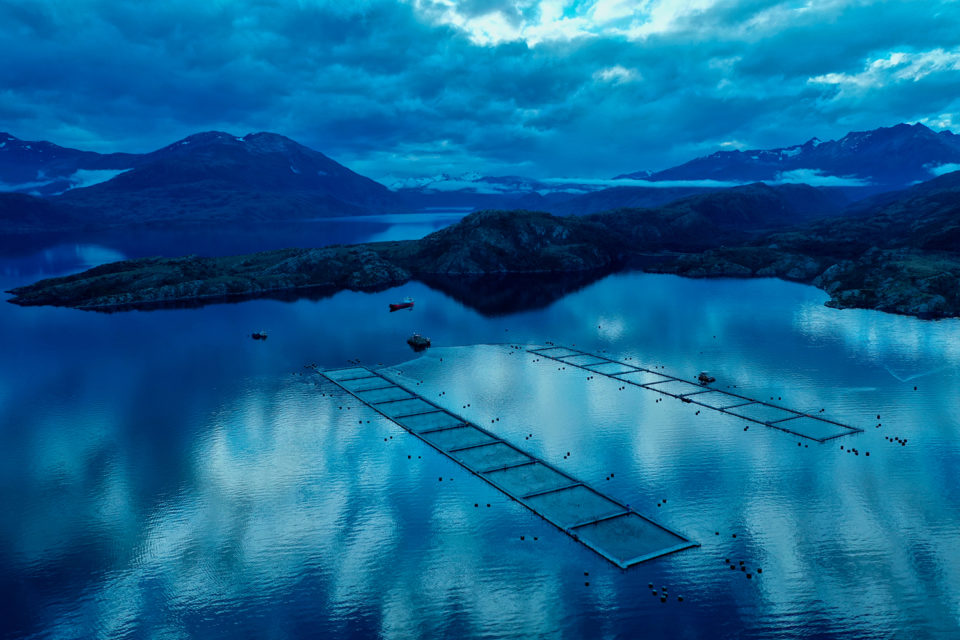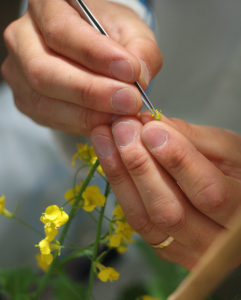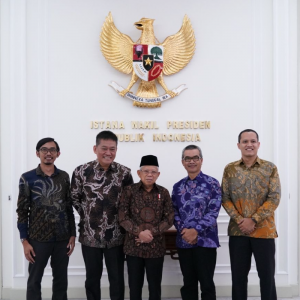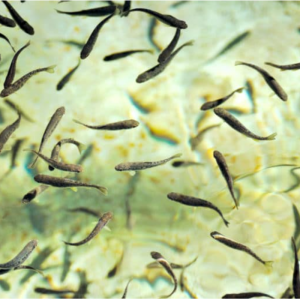
Innovation Award 2020 Finalist: Aquaterra from Nuseed
| Fri, 23 Oct 2020 - 14:55
By applying innovative technology, Nuseed of West Sacramento, Calif., created a new and sustainable source for a critical aquaculture feed component. As a result, the company’s product, Aquaterra®, was selected as one of three finalists for the Global Aquaculture Alliance’s Annual Global Aquaculture Innovation Award.
Through genetic engineering, Nuseed turned canola plants into prolific producers of omega-3 oils and other nutritionally important fatty acids. This output can be used instead of oils from wild-caught fish as a part of aquafeed.
(Editor’s note: Aquaterra and two other finalists will present at GAA’s upcoming virtual GOAL 2020 conference, held from Oct. 5-8. GOAL attendees will vote to select the winner. To learn more about how to become a GAA member and attend GOAL, click here.)
Scientists achieved this outcome by adding microalgae genes to canola. While genetic insertions have been done for years in a variety of plants and animals, most of these involve only one or a few genes, noted Benita Boettner, Nuseed omega-3 global general manager.
“We have seven microalgae genes. So, it’s a very complex and sophisticated structure or construct,” Boettner told the Advocate. She added that Nuseed’s technical partner in devising this construct was the Australian research organization CSIRO.
Inserting seven microalgae genes was so difficult that initially the first 100 modified canola samples failed. Extensive experimentation eventually led to canola that had a consistent yield in terms of desirable oil. For instance, tests show that the oil from the Nuseed canola has triple the percentage omega-3 content as compared to standard canola oil.
Oil from the altered canola also had a significant amount of EPA, DPA and DHA, long-chain polyunsaturated fatty acids that are thought to play an important role in decreasing fish mortality as well as provide a host of human nutrition benefits. The amount of DHA and EPA ran about the same as that found in fish oil, which contains 9 to 11 percent DHA+EPA.
“We had to look for an efficient [biochemical] pathway,” Boettner said in summing up the successful experimental effort.
Studies in the field indicate that Nuseed’s canola oil can provide a benefit when used in feed, according to Pablo Berner, the company’s aquaculture lead in Chile. Nuseed worked with partners to conduct three commercial scale trials in Chile in 2018 and 2019 on Atlantic salmon, the company’s initial target market for its product. Each site had 16 to 24 cages, with roughly 40,000 to 50,000 fish in each cage. There were both control and experimental groups of fish.

Nuseed worked with partners in Chile to conduct commercial scale trials on Atlantic salmon. Courtesy photo.
“On the trials that we did in Chile, we found very clearly the good contribution from our oil to fish-in/fish-out ratio and also on the fish welfare and the fish health. We recognized a consistent lower mortality on the three trials,” Berner reported.
The trials showed a decrease in mortality of the fish fed Aquaterra as part of their diet, with inclusions rates ranging from 1.49 to 1.90 percent. The increase in fish survival resulted in more than 77 tons in additional biomass gain in the experimental group over that of the control group.
The ratio between total omega-3, omega-6 and other nutrients in the canola-produced oil helped account for the results, Berner said, noting that taste testers could not tell the difference between fish from the control and experimental groups.
Unlike algae, canola production can be scaled up to provide a significant amount of omega-3 oil, thereby reducing the pressure on wild caught fish, Boettner explained. The use of canola can pay other environmental benefits, she pointed out. For instance, canola can be part of a crop rotation, thereby restoring soil and providing cover during those times when fields would otherwise lay fallow.
We found very clearly the good contribution from our oil to fish-in/fish-out ratio and also on the fish welfare and the fish health.
Farmers in Canada, Australia and the United States grow more than 10 million hectares of canola annually, according to Nuseed documents. Nuseed also claims that a single hectare has the potential to produce enough omega-3 oil as 10,000 fish each weighing a kilogram.

In addition to aquafeeds, other possible markets for the canola-derived product include livestock animals that need omega-3 oils in their diets. Courtesy photo.
In addition to feed for salmon, other possible markets for the canola-derived product include other fish and animal species that need omega-3 oils in their diets. Pet food, for example, could be one outlet. There also is the possibility of a dietary supplement for people, Boettner said.
She added that the company’s business model is to work with farmers to grow the canola and then Nuseed delivers the product to the end users, in this case aquafeed formulators. This closed-loop approach helps ensure quality and control by, among other things, preventing the modified canola from being mixed with the standard crop. This method also eases the burden on farmers by relieving them of the need to find a market or middleman for the omega-3-rich canola oil product, Boettner noted.
Nuseed has regulatory approval to grow the canola in the United States, Australia and Canada, Boettner said, with approval for the omega-3 oil in Australia and Canada for use in food and feed. Regulatory approval for food and feed is pending in the United States, and the company plans to pursue approval elsewhere as needed.
Nuseed is working on various other initiatives, Boettner said, all with one basic goal in mind: “The innovation that we’re focused on is to use agriculture and to use seed technology to address major nutritional and sustainability challenges.”
Source: Global Aquaculture Alliance






















